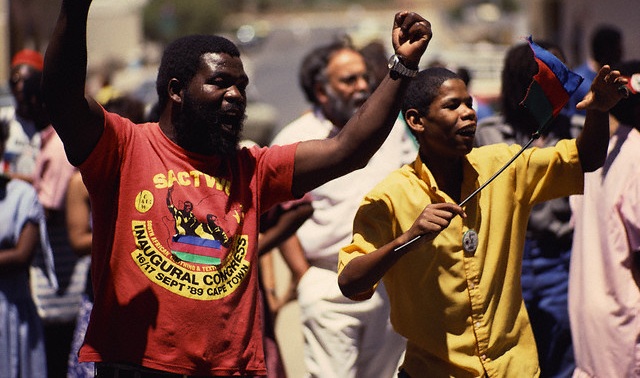2809Change is Imminent in Africa

Two-hundred-years ago, Thomas Jefferson, the third President of the United States, said he would "rather have newspapers without government than government without newspapers." His vision was based on the premise of the right of the citizens to be informed without government censorship.
This access to information by citizens partly explains the wave of antigovernment demonstrations that started in Tunisia and forced President Zine el-Abidine Ben Ali to flee to exile in Saudi Arabia, and quickly spread to Egypt and Yemen like a highly incendiary agent.
As we wait to see how these events play out in respective countries, it's reasonable to conclude that Africa and the Middle East are undergoing a two-pronged generational political metamorphosis.
The first being the overwhelming involvement of huge numbers of the youth who profess no affiliation to any major opposition political groups.These youth are simply voicing their detest of systemic corruption, autocracy and crying out for basic necessities of life which are all made possible by gainful employment but which is lacking.
Second is the youths' reliance on communication techniques such as Facebook, Twitter, YouTube, bloggers, e-mail and SMS to rally support.
I disagree with pundits who tend to brand as Arab and Middle Eastern affair, the wave of demonstrations ignited by self-immolation of 26-year-old fruit vendor Muhammad Bouaziz, who set himself on fire and died after police confiscated his only survival kit - a street cart - in Tunisian city of Sidi Bouzid. True, Tunisia, Egypt and Mauritania are inhabited predominantly by Arabs. But they are also part of Africa.
To give this a true generational identity, we need to contrast the current pro-democracy movement to the birth of independence movement in Africa in 1950s and 60s. The architects of Pan-Africanism, decolonisation and independence movement such as Ghana's Kwame Nkurumah, Tanzania's Mwalimu Julius Nyerere, Congo's Patrice Lumumba, Egypt's Gamal Abdul Nasser and Kenya's Jomo Kenyatta, among others, had one identical characteristic: their privileged exposure to travel abroad for Western education instilled in them revolutionary ideas to come back home and rally fellow Africans to dislodge the colonial masters.
The decolonisation movement was galvanised by African conscripts into colonial armies like Kings African Rifle to protect colonies overseas during the Second World War, on returning home as their experience taught them that they weren't second- class humans as initially portrayed.
However, that independence movement had stark difference to the wind of change Africa and Middle East are now suddenly grappling with. It's engineered by well-educated youth who are products of post-independence African schools, recipients of the hi-tech information age with deep knowledge of the international human rights violation implications by autocratic and repressive leaders.
It is combination of these factors that has boosted the youths' courage to face water cannons, tear gas, batons, live and rubber bullets. Obviously events in Tunisia and Egypt are probably generating serious secret cabinet and military meetings in some African State Houses with one key agenda: "what shall we do if our turn comes?"
While certain African and Middle Eastern leaders know precisely what they should have or must do to avoid the emergency of such turmoil, it will be daydreaming to think that we have seen the last of this youth uprising with Tunisia and Egypt so long as Jefferson's vision of informed citizenry prevails.
Mr Asedri is a Medical Information Technologist, San Diego, California.